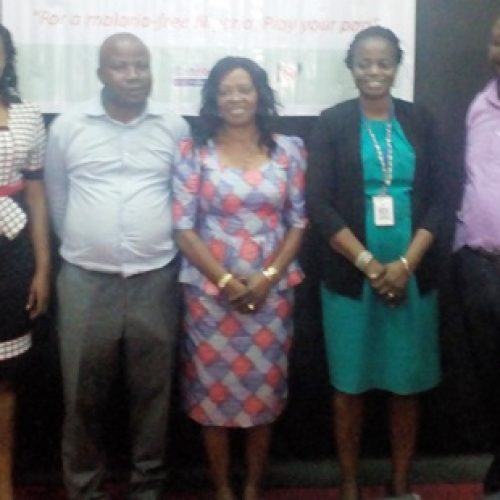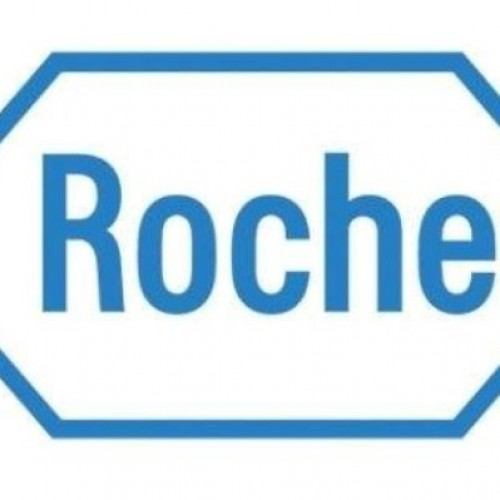World Antibiotic Awareness Week: St Racheal’s Pharma to conduct Resistance Surveillance

Lecturer and Clinical Microbiologist, Lagos State University College of Medicine (LASUCOM), Dr. Bamidele Mutiu, MD, Bydow Pharmacy Mrs. Adenike Adenuga, CEO/MD St. Racheal’s Pharma, Mr. Jide Adeosun and Non-Executive Director , St. Racheal’s Pharma, Mrs Banwo Adeosun at the Media Briefing.
As Nigeria joined the rest of the world to mark the 2018 World Antibiotic Awareness Week (WAAW), one of Nigeria’s leading antibiotic manufacturers and marketers, St Racheal’s Pharma has announce plans to a Surveillance Of Antibiotic Resistance (SOAR) in Nigeria.
Speaking at a media briefing to mark the week at the company’s Africa headquarters in Lagos Friday, Mr. Akinjide Adeosun, St. Racheal’s CEO and Managing director disclosed that the study which will be conducted in 2019 is designed to provide doctors with current antibiotic sensitivity pattern and also guide them towards rational prescription of the drugs.
The goal, he said, is to ensure better treatment outcome for patients and peace of mind for doctors and pharmacists.
The World Antibiotic Awareness Week is organized every November by the World Health Organisation (WHO) to encourage best practices among the general public, health workers and policy makers to avoid the further emergence and spread of antibiotic resistance.
Adeosun announced that the planned surveillance of antibiotics resistance in Nigeria would “ultimately enhance the confidence building capability of the prescribing doctor knowing fully well that his choice of antibiotic is the most appropriate based on scientific evidence from the local study.”
He commended WHO for raising the awareness of the global menace of irrational use of antibiotics through WAAW, adding that St. Racheal’s Pharma was lending its voice and mind “to heighten the awareness on the rational and hence preservation of the life span of our potent antibiotics.”
He observed that the WHO constitution defines the right to health as “the enjoyment of the highest attainable standard of health,” adding that this fundamental Human Right could be breached “if we do not preserve the potency of the antibiotics we have today.
He listed some causes of treatment failure in Nigeria. These include wrong diagnosis and misapplication of antibiotics by quacks masquerading as medical doctors, lack of hygiene and poor sanitation by patients, under dose of antibiotics by patients with correct diagnosis, counterfeit antibiotics by unscrupulous pharmaceutical manufacturers, substandard antibiotics by unscrupulous pharmaceutical manufacturers, low coverage of National Health Insurance Scheme (NHIS) and Self-medication of ‘Prescription Only’ medicines by patients.
To tackle the menace of antibiotic resistance in Nigeria, the St. Racheal’s CEO advised members of the public to always consult their doctors and take prescriptions to pharmacists. He also urged Nigerians to stop self-medication and to ensure they take the full dose of their antibiotics when prescribed by doctors.
He also advised doctors and pharmacists to always source their antibiotics from top quality pharmaceutical manufacturers while also calling on the pharmaceutical industry to invest more towards the discovery of new antibiotics.
Adeosun also called for the strengthening of the NHIS so it can provide access to health care for more Nigerians.
In a keynote presentation, a senior lecturer and Clinical Microbiologist at the Lagos State University College of Medicine (LASUCOM), Dr. Bamidele Mutiu described Antibiotics as the cornerstone of modern medicine which have been saving lives since the discovery of Penicillin, the world’s first antibiotic, in 1928.
However, Dr, Mutiu in the presentation titled “Antibiotic Resistance in Nigeria: A call to action” expressed concern that some bacteria have become resistant to virtually all available antibiotics over the years. Yet, no new antibiotic has been developed in the last 30 years.
“We are running out of effective antibiotics that we need to fight infections,” he said, citing different studies showing different levels of resistance to popular antibiotics. In Lagos, for instance, a study showed that some germs (bacteria) such as the Pseudomonias aeruginosa strains have become resistant to all available antibiotics in Nigeria at a very high level ranging from 45% to 100%.
The result of such resistance, he further said, is that physicians have to develop some ingenious ways to get their patients, who need such antibiotics, treated, adding that more people, are dying due to antibiotic resistance.
Dr. Mutiu identified some factors responsible for antibiotic resistance in Nigeria. These include: Exposure to sub-optimal levels of antimicrobial, Exposure to microbes carrying resistance genes, inappropriate drug use, lack of quality control in manufacture or outdated antimicrobial , inadequate surveillance or defective susceptibility assays, poverty or war and use of antibiotics in foods.
“Antibiotics are used in animal feeds and sprayed on plants to prevent infection and promote growth Multi drug-resistant Salmonella typhi has been found in 4 states in 18 people who ate beef fed antibiotics,” he said.
He noted that apart from other factors such as misuse, poor infrastructure, insufficient equipment, poor knowledge and application of basic infection control measures, lack of procedure, lack of knowledge of injection and blood transfusion safety, absence of local and national guidelines and policies,, the problem of antibiotic resistance resulted globally because of “prolonged failure to preserve antibiotics.”
About author
You might also like
Malaria in Pregnancy: Experts canvass early antenatal care as key to prevention
Pregnant women have been urged to cultivate the habit of reporting for antenatal care as soon as they miss their monthly period for proper checks for ailments such as malaria-related life-threatening
WHD: Roche, Rainbow Hospital lead Media Roundtable on diabetes
Multinational pharmaceutical company Roche Diagnostics in collaboration with Rainbow Specialist Medical Centre earlier today kicked off activities marking the 2016 World Health Day (WHD) in Nigeria with a media roundtable
Monkey pox: AMLSN mocks FG for sending blood samples to Senegal
…Opposes FEC’s adoption of Yayale-Ahmed committee’s report Abuja – The Association of Medical Laboratory Scientists of Nigeria (AMLSN), has said it was a failure of Nigerian health system that compelled






0 Comments
No Comments Yet!
You can be first to comment this post!